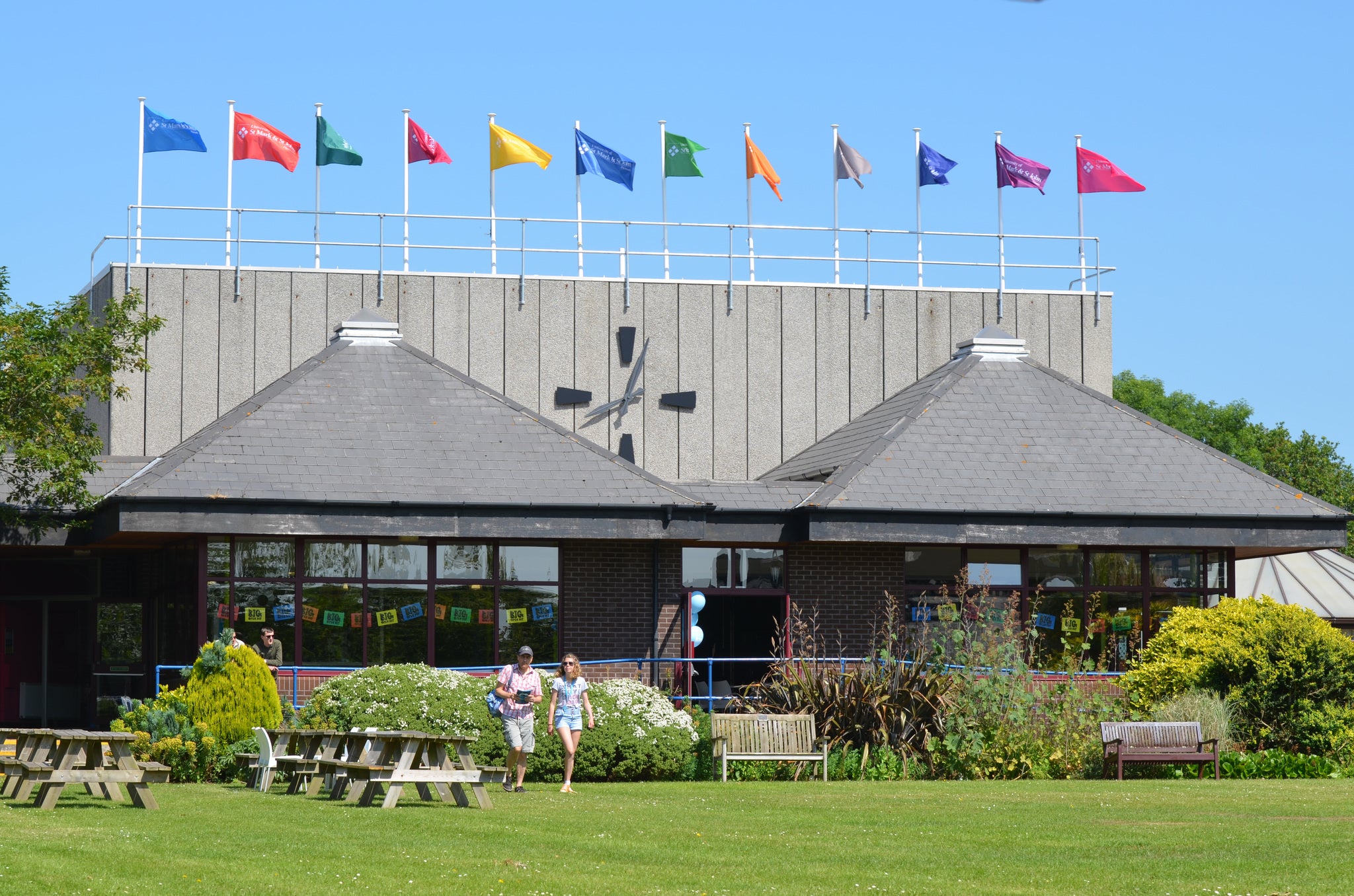
Your support helps us to tell the story
From reproductive rights to climate change to Big Tech, The Independent is on the ground when the story is developing. Whether it's investigating the financials of Elon Musk's pro-Trump PAC or producing our latest documentary, 'The A Word', which shines a light on the American women fighting for reproductive rights, we know how important it is to parse out the facts from the messaging.
At such a critical moment in US history, we need reporters on the ground. Your donation allows us to keep sending journalists to speak to both sides of the story.
The Independent is trusted by Americans across the entire political spectrum. And unlike many other quality news outlets, we choose not to lock Americans out of our reporting and analysis with paywalls. We believe quality journalism should be available to everyone, paid for by those who can afford it.
Your support makes all the difference.
Overall ranking: 109th out of 123 in the Complete University Guide for 2015.
History: Founded by Derwent Coleridge, brother of Samuel Taylor Coleridge, it was a marriage in 1923 of the teacher-training colleges St John's of Battersea and St Mark's of Chelsea. In 1973, it moved to Plymouth. It received University College status in 2007 and was renamed from University College Plymouth St Mark and St John, or UCP Marjon. In 2013 they became the University of St Mark & St John, and from August 2014 the institution will be structured in three faculties: the Faculty of Education and Social Sciences; the Faculty of Sport and Health Sciences; and the Faculty of Language and Creative Industries.
Address: Greenfield site outside Plymouth.
Ambience: Views to die for, overlooking Dartmoor and the sea. Five miles from Plymouth centre. Modern premises swathed in shrubs, trees, flowers, hanging baskets and frolicking squirrels. Friendly, close-knit atmosphere. Set on a single campus with lecture rooms, library, accommodation, bars and more.
Who's the boss? Professor Cara Aitchison, former head of Moray House School of Education and Chair in Social and Environmental Justice at the University of Edinburgh, took up the position of vice-chancellor and chief executive in May 2013.
Prospectus: 01752 636 890 or visit the website here.
UCAS code: P63
What you need to know
Easy to get into? Yes. Average entry requirements are anything between 220 and 320 UCAS points, but the university is committed to widening participation.
Vital statistics: 'Marjon', as it is to those in the know, has over 2,600 students, and is known for teacher training and sports degrees. Has diversified energetically, and now runs a variety of subjects, including media, speech and language therapy, English language, literature and writing, live music, outdoor adventure, sport health coaching and PE, acting, business and children, youth and community, language and communication, digital technology and media courses.
Added value: Began offering two-year 'fast-track' degrees in 2012. Journalism and Media Centre opened in March 2013 with two Mac suites. Fully-equipped live music lab. The university offers elite sport scholarships to assist talented athletes to continue their sporting careers without compromising their education. There is a particular focus on providing swimming and diving scholarships to students recognised by the ASA/ British Swimming as elite. Their elite sport student Ben Proud won two gold medals and one bronze at the Commonwealth Games 2014. The university also has a suite of new leadership and business management degrees closely aligned with its distinctive areas of education studies, media production, outdoor adventure and sport.
Teaching: 17th out of 123 for student satisfaction with teaching quality in the Complete University Guide, an astonishing improvement from last year.
Graduate prospects: 59th out of 123 with 63.5 per cent finding graduate level employment after completing their degrees, another incredible leap in the results from the previous year.
Any accommodation? Yes- Seven halls of residence with 38 student houses, consisting of either en-suite or standard study bedrooms. Standard single rooms start at £96, while en-suite single rooms are from £110 a week. Campus accommodation is guaranteed if students meet the admission requirements and apply by the deadline. See here to find out more.
Cheap to live there? About average. Private rents in Plymouth start at around £75 per week.
Transport links: If you don't have a car, you can take the bus to and from Plymouth until midnight. Road links with the rest of the country are not bad nowadays and the A38 Devon Expressway links to M5 at Exeter. Or catch a train.
Fees: UK and EU undergraduate fees for 2014 are £9,000, while international students pay £9,700 a year.
Bursaries: Partakes in the National Scholarship Programme to help those from the most disadvantaged backgrounds. Sports scholarships also available. See what money you could get here.
The fun stuff
Nightlife: Bopping in the students' union with a Freshers Ball and May Ball. Gigs at Plymouth Pavilion and a range of bars and clubs.
Sporting facilities: Outstanding sports facilities including sports therapy clinic, sports science lab, gym, swimming pool, climbing wall and 3G pitch.
Glittering alumni: Bernard Cornwell, author of the Sharpe novels; Joy Carroll, the original Vicar of Dibley; Helen Glover, Olympic rower.
Join our commenting forum
Join thought-provoking conversations, follow other Independent readers and see their replies
Comments